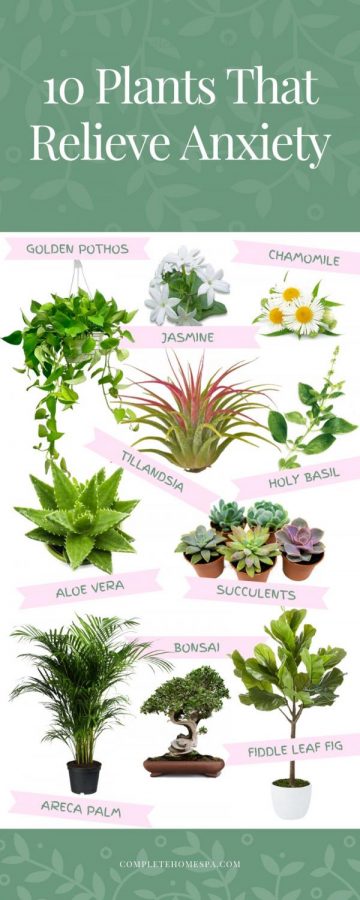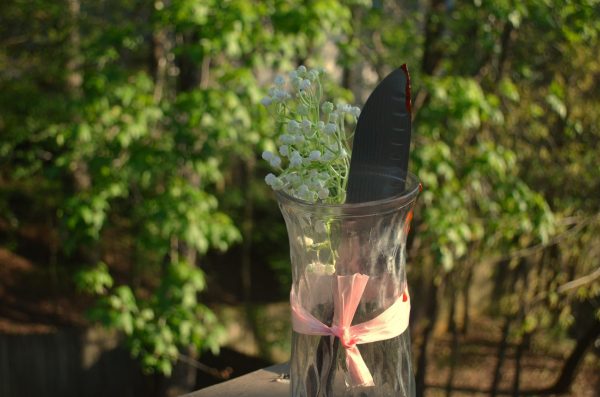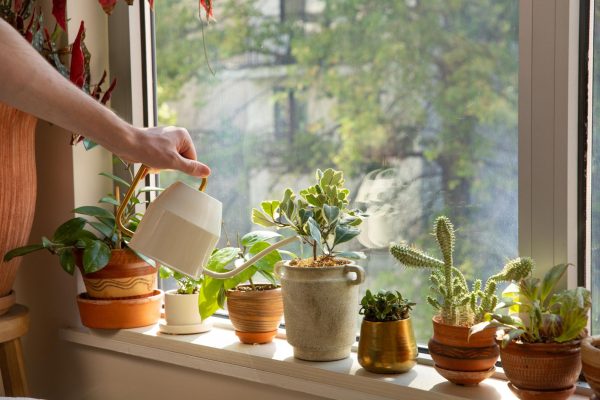Surprising benefits of household plants around the house
Certain plants, such as succulents, have grown in popularity over recent months. These plants make for beautiful, living décor and represent another way to help with mental health. “It’s just nice to see plants grow and flourish, plus lots of greenery is relaxing!” said former NC student Jacob Tutterow.
September 24, 2020
Mental health issues pose a consistent problem to modern society, but they only recently become a topic of conversation. Searching for stress relievers and coping strategies may present challenges, but what if a solution grows from the soil on which we stand? Studies show multiple household plants that help cope with depression and anxiety even in newer cases brought about due to COVID-19.
Surprisingly, these plants may exist in your house right now. Aloe vera, bamboo palm, and herbs, such as basil, commonly reside in average American homes. Aloe vera does more than heal skin ailments. Aloe vera purifies the air of irritants that aggravate the human respiratory system. Aloe vera, a low-maintenance,strong plant so even the most challenged plant growers can successfully maintain an Aloe vera plant. Bamboo palms add to beautiful scenery, but they naturally humidify the air making breathing easier for people. The herb, basil, usually a tasty herb found in foods, outputs 20 hours of oxygen per day. These plants help purify the air and filter out pollutants that impact the respiratory systems of humans. Chamomile, a common ingredient in tea and lotions, helps people feel less tense and fall asleep. Disturbed sleep commonly occurs when people feel stressed or anxious as surveyed groups of individuals report regarding COVID-19.
The mental health effects of quarantining and social distancing currently top the list of concerns for most folks in the world. Ongoing research suggests that indoor plants not only purify the air, but have calming effects on mood, stress levels and blood pressure resulting in improved mental health for plant owners.
“Growing plants gives me a sense of peace and also gives me a purpose. It makes me feel like I am doing something that’s not just helping me, but others too,” said plant owner and junior Swami Kajale.
When polling 60 North Cobb students, 50 percent revealed they enjoy growing plants, while the remaining 30 students did not express an affinity towards gardening. The plants that help with mental health issues have different components that aid in the challenges of mental illness. Linalool, a fragrant compound found in Basil, reduces the feelings of anxiety. Ashwagandha, found in most herbs, contributes to stress response regulation in humans.
“I’ve always loved caring for things like plants and animals. It’s very rewarding to help them grow and thrive,” said junior Chloe McSpadden.
Distracting oneself by caring for plants or animals helps lower the stress levels of some. People tend to take care of plants when they struggle with their mental state. Caring for other living entities can help in improving negative mental states in people. Maybe the Gardening fad’s growing popularity contributes to the various benefits found in certain plants that alleviate tension. The budget-friendly hobby of growing and tending to these therapeutic plants provides a nice alternative to costly prescriptions that have expanded since mental health issues continue to rise.

















Margaret Brooker • Sep 24, 2020 at 9:11 PM
Enjoyed the article- we all need aids to help us withstand the effects of Covid 19! I have to admit I am Marissa ‘s grandmother!